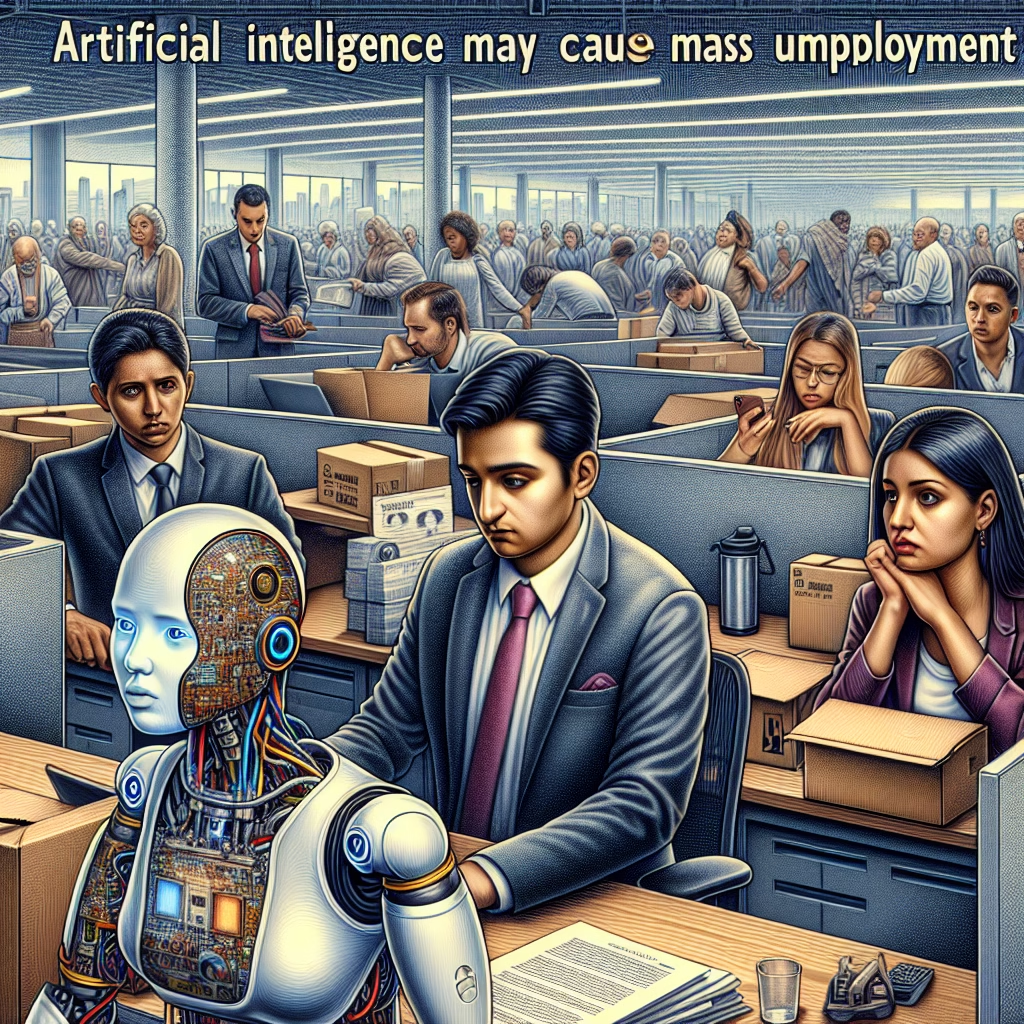Artificial Intelligence May Cause Mass Unemployment, Says Geoffrey Hinton – ‘Godfather of AI’ Reveals Safe Jobs
As artificial intelligence (AI) continues to redefine industries, jobs, and how we live, concerns around its impact on the global workforce are reaching new heights. One of the most influential voices in the AI landscape, Geoffrey Hinton—often referred to as the “Godfather of AI”—has amplified the conversation by warning that AI could lead to mass unemployment, especially in roles where repetitive processes can be replicated by machine learning models.
In this blog post, we’ll dive deep into Hinton’s recent statements, analyze the evolution of AI’s capabilities, and explore which jobs are considered more secure in the era of intelligent automation.
Who Is Geoffrey Hinton and Why Should We Listen?
Geoffrey Hinton is a pioneering figure in artificial intelligence. His work laid the groundwork for modern deep learning, especially in the areas of neural networks. Hinton was instrumental in developing the backpropagation algorithm that powers most AI models today, including those used in tools like ChatGPT and Google’s language models.
Having worked with Google and contributed decades of research to the AI domain, Hinton’s concern isn’t just another opinion—it comes backed with experience, insight, and a deep understanding of how exponentially AI is evolving.
AI and the Looming Threat of Mass Unemployment
During recent interviews and panel discussions, Hinton expressed deep concerns that AI systems have reached a point where they can outperform humans in specific tasks. While AI was once only capable of supplementing human labor, it’s now encroaching on jobs across various sectors—including white-collar professions once assumed to be safe from automation.
Why the Concern Is Real
- Speed of Development: AI technologies are evolving at a pace that few expected. What took decades to develop is now being outmatched by innovations within months.
- Cost Efficiency: Companies are incentivized to reduce operational costs. AI offers 24/7 capabilities at a fraction of the expense of human labor.
- Accuracy and Scalability: AI systems can analyze massive datasets, draw conclusions, and execute actions with little to no human intervention.
Hinton has stated that roles relying heavily on pattern recognition, data analysis, or content generation are at high risk. Think of customer service representatives, paralegals, data entry clerks, and even software developers. AI, especially with advancements in natural language processing and generative models, is becoming increasingly competent at handling these roles.
Jobs at Risk Due to AI Automation
Industries that are heavily reliant on routine, predictable tasks are most vulnerable. Here are some of the key professions likely to face significant disruption:
- Call Center Workers: AI voice tools and chatbots are already transforming customer service globally.
- Content Writers: With platforms capable of generating SEO-optimized articles, blogs, and even news pieces, many writers may be displaced.
- Data Analysts: AI algorithms can sift through data and extract actionable insights much faster than human analysts.
- Financial Clerks: Bookkeeping and financial forecasting are increasingly automated through AI modeling tools.
- Human Resources Assistants: Hiring software now screens resumes, schedules interviews, and even assesses candidate suitability.
According to Hinton, the unique difference this time is that AI not only threatens manual labor jobs (as seen in past industrial revolutions) but is also upending highly skilled, cognitive-heavy positions.
Which Jobs Are Likely to Be Safe from AI?
While the outlook may seem alarming, Hinton also points out that certain jobs are more resilient. These typically involve human interaction, emotional intelligence, creativity, and adaptability—areas AI still struggles to master.
Top AI-Resistant Job Categories
- Healthcare Professionals: Nurses, doctors, and therapists rely on empathy and nuanced human judgment, making them hard to replace.
- Skilled Trade Workers: Electricians, plumbers, and construction workers require hands-on expertise and problem-solving in physical environments.
- Educators: While AI can assist in learning, the role of teachers in guiding and mentoring students remains essential.
- Creative Professionals: Artists, musicians, and designers apply creative expression and emotional intelligence that AI cannot fully replicate.
- Mental Health Professionals: Psychologists and counselors offer empathetic human connection, which remains irreplaceable.
These roles involve a high level of social interaction and intuition, areas where AI faces limitations due to its lack of consciousness and moral reasoning.
The Road Ahead: Adapting to an AI-Driven Economy
Rather than stoking fear, Hinton’s warning should serve as a call to rethink education, upskilling, and job design. Governments, tech companies, and educational institutions must work together to prepare the current and future workforce for AI’s integration into nearly every sector.
Strategies for Coping with AI Disruption
- Invest in Continuous Learning: Lifelong education will become the norm. Professionals must acquire new skills that are complementary to AI.
- Foster Interpersonal Skills: Communication, collaboration, and critical thinking are areas where humans still outperform machines.
- Explore Hybrid Roles: Combine AI tools with human oversight to increase efficiency without eliminating the human element.
- Government Intervention: Policymakers must set regulations, provide unemployment safety nets, and fund AI training programs.
Ultimately, if managed responsibly, AI could lead to job transformation rather than total job loss. However, proactive steps must be taken today to avoid the displacement of millions tomorrow.
Conclusion: A Cautious Yet Optimistic Future
Geoffrey Hinton’s recent statements may seem like a grim foreshadowing, but they also offer a reality check. The transformative power of AI is undeniable, but so is its disruptive potential. The key lies in preparedness, adaptability, and a willingness to evolve with technology rather than fight against it.
As we navigate this new frontier, one certainty remains clear: the human element still has a powerful and indispensable role in shaping the future of work. By focusing on the skills machines can’t replicate—empathy, innovation, and morality—we can carve out a secure and meaningful place in the AI age.
Stay informed, stay relevant, and most importantly—stay human.
< lang="en">







Leave a Reply